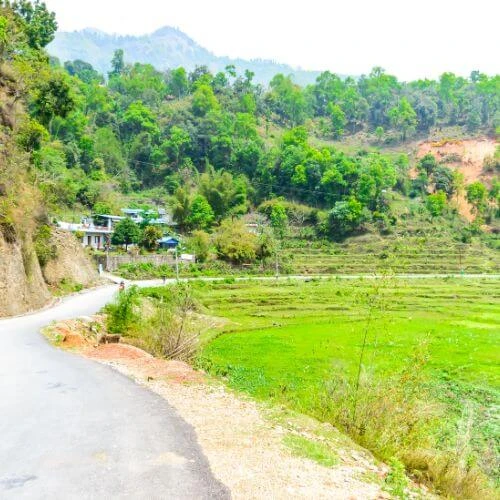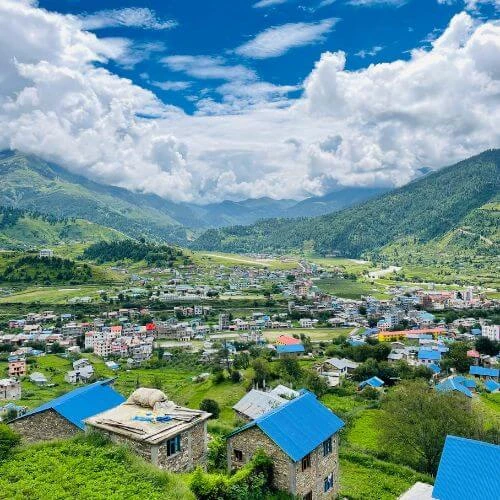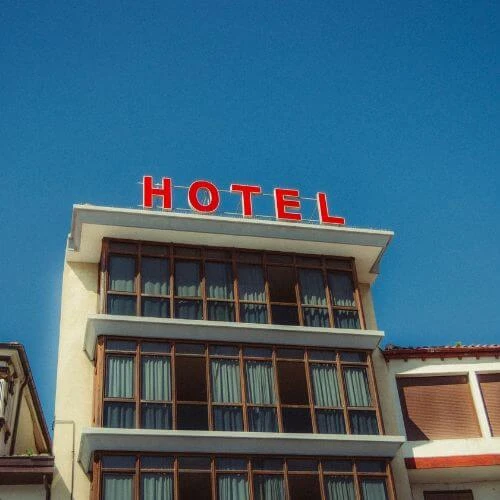Is Nepal safe to travel alone as a female traveler?
Nepal is widely recognized as a top choice for single female travelers due to its reputation as a safe destination. While all solo travelers face risks, especially in certain cultures, women face more risk and can be more vulnerable. Nepal stands out as a major destination for both adventure seekers and spiritual pilgrims. Despite gender stereotypes in Nepalese society, women embrace solo travel in Nepal. While safety concerns can be a challenge for women traveling alone, overcoming these challenges becomes a rewarding part of the journey. Nepal has amazing Himalayan peaks and diverse cultures, making it an ideal destination for solo female travelers. As a democratic country, Nepal is considered safe and stable, free from civil wars and terrorism. However, like any country, it does have some crime, with occasional incidents such as theft and robbery that female travelers should be aware of. Despite this, here are some potential risks that solo women might face while traveling in Nepal.

Solo Night travel
- Choose daytime exploration for a safer experience, providing well-lit surroundings and open businesses for your enjoyment.
- Travel with companions in lively areas at night and stay mindful of your surroundings to minimize potential risks or unwanted attention. However, It's advisable to avoid lonely roads during late hours in any city.
- Choose accommodations in well-known and busy areas to ensure a secure and vibrant environment.
- To minimize risks at night, it is crucial to blend in, especially in well-populated and well-lit areas, and avoid standing out.
Transportation Safety
- Traveling alone as a woman by bus or plane is generally safe in Nepal, with minimal inconveniences or troubles.
- Choosing to rent a vehicle from a trustworthy company or through your hotel ensures a safe travel experience.
- Using public transportation in Nepal can pose challenges due to issues such as crowded vehicles, unreliable schedules, and less strict safety regulations. Despite potential language barriers and accents, Nepalese people are generally kind and always ready to help. Initiate conversations with someone you believe knows English and ask for assistance if needed.
- Safety concerns, such as theft or harassment, may arise in crowded public transport.
- To stay safe on the road, it's advisable to choose tourist buses over local ones, as local buses might speed on mountain roads, posing risks.
- Tourist buses, with well-trained drivers and a more relaxed pace, offer a safer alternative. The new bus park (Naya Bus Park) at Gangabu near Balaju offers buses, vans, and minivans for long-distance travel.
Scams in Nepal
- When you're in Nepal and taking a taxi, make sure to agree on a fare before you start or go for cabs with meters. Avoid accepting rides from unmarked taxis or sharing with strangers, especially if the fare seems unusually low. Choose taxis equipped with meters when selecting a ride. Alternatively, consider using ride-sharing apps like Tootle, Indrive, or Pathao for safer taxi or bike services, ensuring a smoother journey.
- Buy tickets from official counters or authorized vendors, not individuals offering "deals."You can also book or buy tickets using digital wallets such as e-sewa and Khalti while in Nepal.
- Politely decline if someone pressures you to buy something or donate. It's okay to say no. Saying the word “NO” is something that one should practice while traveling
- Avoid responding to unexpected offers for tours or help. Instead, hire licensed guides from trusted agencies like Abound Holidays.
Street Harassment
- The occurrences of street harassment in Nepal are mild to moderate.
- In Kathmandu, you might experience eye-teasing or unwanted attention, especially in crowded areas like the local market. Stay aware of your surroundings to ensure safer experiences
- In rural areas, where people tend to be more conservative, you may encounter less direct harassment. However, locals might stare or express curiosity more openly. Be prepared for this cultural difference while exploring these regions.
- To address concerns of street harassment and enhance the safety of female passengers, Kathmandu has recently introduced a women-exclusive bus service. This initiative aims to create a secure and comfortable environment, especially during peak hours when buses tend to be overcrowded.
Food and waterborne illness
- Bottled water or purification tablets are popular choices for safe drinking water.
- To minimize the risk of foodborne and waterborne illnesses, stick to well-cooked and hot food. Avoid street food that may not be prepared in hygienic conditions.
- Choose restaurants and eateries with good reviews or recommendations from reliable sources. Look for places that look clean and well-maintained.
- And if you are a vegan searching for hygienic and vegan food, there are several vegan restaurants around Kathmandu.
Trekking as a single female in Nepal
Exploring the beautiful landscapes of Nepal as a solo female trekker can be an exciting adventure, but it's crucial to navigate the challenges wisely. From April 1, 2023, The Nepal Tourism Board has mandated hiring a guide or a porter for solo trekkers on Nepal's trekking trails due to heightened safety concerns, as many Free Independent Travelers (FIT) encounter challenges such as getting lost in remote trekking areas, facing altitude sickness, and experiencing mental fatigue. This ensures safety in high-altitude areas and addresses concerns like getting lost, health issues, and natural calamities. Without a licensed guide, obtaining essential trekking permits becomes impossible. Contact us for seamless trekking experiences with female guides for added comfort and convenience. We also facilitate permits to enhance your trekking experience efficiently.

For solo female trekkers, choosing a local female guide/porter is a popular and safer option. Female guides often prefer family-run guesthouses, providing a secure environment. Trekking alone in Nepal might seem tempting, but it poses unnecessary risks. It's advisable to trek with a guide from a reliable company, regardless of gender, to ensure a safer journey through the rough mountain terrains.
When you're trekking alone, watch out for people asking too many personal questions. You can choose which questions to answer and keep your privacy. Being polite and diplomatic in these situations is important. Traveling by yourself gives you the power to rely on yourself, making you more independent and confident. But remember, it can be tough, especially in remote destinations.
For solo female travelers, staying safe is super important. If you get hurt, like twisting an ankle or falling, not having someone right there to help can make things worse. Altitude sickness symptoms can get worse fast, and it's harder to notice them when you're by yourself. Encounters with wildlife can be risky, depending on where you are. Dealing with problems like getting lost or bad weather is much scarier without someone with you. So, being extra careful and prepared when you're on your own is crucial.
When you're feeling unsure or confused during emergencies, it's hard to think clearly. That's why solo female travelers in Nepal must be extra careful, prepared, and follow the rules. This ensures they have a safe and fun trip through the stunning landscapes of the Himalayas.
Tips for Solo Female Travelers in Nepal
In Nepal, people generally respect women, and the locals are friendly and welcoming. Going on a solo journey might seem scary, but it's also an opportunity to discover yourself, grow, and have amazing adventures. Although Nepal is considered the safest country for solo female travelers, it's important to stay alert and take precautions for a secure journey. Traveling alone as a woman can be an incredible and transformative experience. Simply follow these tips to guarantee safe and fantastic travel.

Research well
Before beginning your solo trek, start by doing thorough research. Read personal stories and experiences on blogs, and ask questions in popular online forums and travel groups on Facebook. As a solo female traveler, connect with other women who've explored the same destination to gather insights from their experiences. Consider your level of experience, interests, and comfort zone when choosing a trekking route. Go for well-established trails in national parks or guided treks in places with good tourist facilities. If possible, learn basic greetings and phrases in the local language. Ensure you have all the necessary documentation, including visas and trekking permits, before you go. Prioritize safety by researching potential risks like political instability, natural disasters, and common scams. Familiarize yourself with the trail details, understanding its length, difficulty, terrain, elevation changes, and average completion time.
Physical preparedness and appropriate gear
Getting ready for solo treks is a big task, especially for women. First, ensure your body is ready by increasing your walking or running, incorporating intense workouts, and practicing uphill climbs with stairs. Enhance flexibility and prevent injuries through regular stretching and yoga. Work on balance gradually. Break in quality hiking boots and practice with your backpack. Stay hydrated, maintain a healthy diet, and be ready for the trek. Crucially, prioritize safety – relying on your gear for survival is vital when alone. Good equipment boosts confidence and aids in emergencies. Prioritize comfort with gear that reduces injuries and enhances the trek experience. Invest in essentials like boots, a backpack, and weather-appropriate clothes. Most importantly understand how to use your gear effectively.

Dress modestly
When in Nepal, it is important to dress modestly as a sign of respect for the country's religious and conservative values. Dressing in Nepal, especially in cities, involves a mix of formal and casual attire, similar to other parts of the world. However, it's crucial to be mindful of cultural differences, as wearing revealing clothes is uncommon in Nepal and may cause cultural shock. Following the local dress codes helps you connect well with the locals and reduces any unwanted attention that solo female travelers might face. Dressing in line with the local culture not only ensures comfort and confidence while exploring the country but also provides an opportunity to learn and appreciate a different way of life. Whether visiting religious sites or rural areas, choose long pants, mid-calf skirts, or loose dresses, and avoid revealing clothes.

Let someone know your plan
While Nepal is generally safe for solo female travelers, informing someone about your plans is crucial, even if you're an experienced explorer. This is vital for several reasons. Firstly, in unexpected occurrences such as a medical emergency or lost passport, having someone aware of your location can facilitate assistance coordination. It instills peace of mind, knowing that someone cares about your well-being while traveling alone. Additionally, if there's a communication gap, your trusted contact can raise the alarm and initiate searches if necessary. Choose someone you trust, like a friend or family member, to be informed of your plans. Also, inform your embassy or consulate and travel insurance company about your destination. This way, if any unexpected situations arise during your trip, they can assist.
Choose reputable accommodation
As a female traveler in Nepal, it's crucial to pick a safe and reliable place to stay. Reputable accommodations prioritize your safety with features like secure entrances, 24/7 reception, and CCTV surveillance. Having helpful staff adds an extra layer of security, as they can guide you, and assist in emergencies, and ensure you feel comfortable. Staying in a secure environment gives you peace of mind, letting you enjoy your trip without constant worries. Check online reviews and recommendations from other solo female travelers, focusing on safety features, staff helpfulness, and overall cleanliness. Consider your budget and travel style when choosing between hostels for social interaction or guesthouses for more privacy. Don't hesitate to contact accommodations directly to ask about security measures and address any concerns you may have.
Tourist Police Helpline:
- Bhrikutimandap: +977-1-4247041
- Thamel: +977-1-4700750
- Basantapur: +977-1-4268969, 4269452
- Pokhara: +977-61-521087
- Belhiya: +977-71-520197
- Metro Police Control, Ranipokhari: 100, 120, 130
- Department of Immigration, Kalikasthan: +977-1-4433934,4429660
- Police Headquarters Operation, Naxal: +977-1-4412780,4411549
- Nepal Tourism Board, Bhrikutimandap: +977-1-4256909
- Nepal Tourism Board, Pokhara:+ 977-61-465292,463029
- Tourism Crisis Unit: +977-97510-44088
- Himalayan Rescue Association: +977-1-4440292, 4440293
Culture and Etiquette in Nepal
Nepal is a country with 125 different ethnic groups and castes, each having its own special customs and traditions. This diversity makes it interesting and varied. Nepal is famous for its friendly culture and warm hospitality of the local people, and when you visit as a solo female traveler, it's important to be respectful of Nepali traditions while appreciating the beauty and variety of the country. Here are some cultures and etiquettes you need to know while traveling as an alone woman in Nepal.
In Nepal, instead of saying "hello," people often greet each other by saying "Namaste," which means "I greet the god within you." When people say "Namaste," they usually put their hands together like they're praying and give a little bow. Whether you're meeting someone new or saying hi to a friend, using "Namaste" is a great way to connect with people in Nepali culture.

When you visit someone's house in Nepal, they make sure to offer you food, whether it's just water, tea, or even a full meal like daal bhat. They want you to eat something before leaving, considering it is a kind gesture. Even if you feel full, finishing your meal is a good idea because locals believe that not eating everything might suggest the food wasn't satisfying, and they want to ensure you enjoyed it.
When you go to temples in Nepal, remember to take off your shoes before entering, and avoid bringing any leather items inside. In Hinduism, using animal products, such as leather, is discouraged because it goes against the principle of ahimsa, which is all about being kind to every living thing and avoiding violence.
In Nepal, it's common for married couples to live with their parents. This shows how much they value family unity and respect for elders. They do this to stay close to their families and keep strong bonds. Living together helps everyone support each other and maintain a close-knit family.
Nepalese culture puts a lot of importance on respecting older people. In Nepali families, elders are highly respected, and their wisdom is valued. Kids are taught to be polite and helpful to their parents, grandparents, and other older family members. They often show respect by bowing, using polite words, and assisting elders. It is common to touch elders' feet as a sign of respect and to ask for blessings. Elders give guidance, share their experiences, and have a big say in family decisions.
Nepalese do not eat beef because Hindus consider cows sacred, and it is the national animal of Nepal. Travelers should be mindful of local sentiments and customs regarding beef consumption and ask about food preferences when dining in different regions of Nepal.
In Nepalese culture, there's a concept of purity and impurity called "JUTHO." This refers to food or items touched by someone else's mouth, which is considered impure. So, if you drink from someone else's water bottle, try not to let it touch your lips, and avoid eating from someone else's plate or offering food you've taken a bite of. Also, wait to touch cooked food until you've purchased it.
Note: It's common for many children in Nepal to approach tourists with excitement. They might repeatedly say "namaste" or "hello" to unfamiliar visitors. It's a common sight for kids to ask for things like "one dollar," "chocolate," or a "pen." It's important to note that these children are not necessarily orphans or beggars; they are just regular school kids who have observed tourists giving out small gifts.
A reminder to be a responsible traveler
With growing awareness of how our actions affect the planet, many travelers are now into sustainable travel. It simply means making choices that are good for the environment. This could be picking eco-friendly places to stay, using transportation that doesn't harm the air, and helping out the local communities you visit. So, even when you're on your own, you can still travel in a way that's friendly to the Earth. Here are some tips to make you become a more responsible traveler.
Avoid carrying plastics and try to pack light whenever possible. Many people believe they won't find certain items in Nepal, but in reality, you can find everything you need. Therefore, packing light not only helps minimize plastic usage but also ensures you have everything you need without overburdening yourself.
Bringing a hydration pack is a great idea to reduce the use of plastic bottles while traveling. It's convenient and easy to use. The hydration pack provides a system that allows you to access water on the trek without the hassle of reaching for a bottle or asking someone else for help. It's a practical and eco-friendly choice for staying hydrated during your travels.
Adopt the "Leave No Trace" principle during your travels. Ensure you leave behind only footprints, avoiding littering with plastics or waste. Take only memories, avoiding taking anything from the environment to preserve biodiversity. It's a simple yet impactful way to enjoy nature responsibly and protect our planet.
Stay in sustainable accommodations like homestays or family-owned tea houses to support the local community and families. This choice not only provides you with a unique and authentic experience but also directly contributes to the economic well-being of the people in that area.
Conclusion
More and more women are traveling alone to discover the world on their own terms, breaking societal norms and gaining confidence. Nepal is considered a safe place for solo female travelers with its diverse landscapes and friendly atmosphere. While there might be occasional safety worries like theft or harassment, being cautious, especially at night, and picking trustworthy places to stay can make the journey safer.
If you're planning to trek in Nepal, keep in mind that recent regulations recommend solo trekkers to hire licensed guides for safety reasons. Going for a local female guide or porter is a common and safer choice. Ensuring physical preparedness, dressing modestly, and showing cultural respect are crucial for a positive trekking experience. Communicating your travel plans, selecting trustworthy accommodations, and respecting local customs all contribute to making your solo travel in Nepal secure and enjoyable.
FAQs
Is solo female trekking accepted in Nepal?
- Yes! solo female trekking is accepted in Nepal, But From April 1, solo trekkers must hire a licensed guide while on Nepal's trekking trails. Without a licensed guide, obtaining essential trekking permits becomes impossible.
Is Kathmandu safe for solo females?
- Yes! Kathmandu is safe for solo females as well as solo travelers. People are speaking and very friendly. However, you need to take some precautions like you take at home such as taking care of yourself at night and keeping to the main streets.
Where to go as a solo female traveler in Nepal?
- There are many options. Explore the streets of Kathmandu, Nepal's capital, where you can visit historic temples, and bustling markets, and enjoy the local culture. For nature lovers, trek to the Annapurna Base Camp, Poon Hill, Everest Base Camp, and many more treks surrounded by stunning Himalayan landscapes, ensuring a memorable solo adventure.
Is Nepal a safe destination for solo females?
- Yes, Nepal is generally considered a safe destination for solo females, with friendly locals and beautiful landscapes. Exercise usual precautions, stay aware of your surroundings, and enjoy the rich cultural experience as you explore this Himalayan gem.










